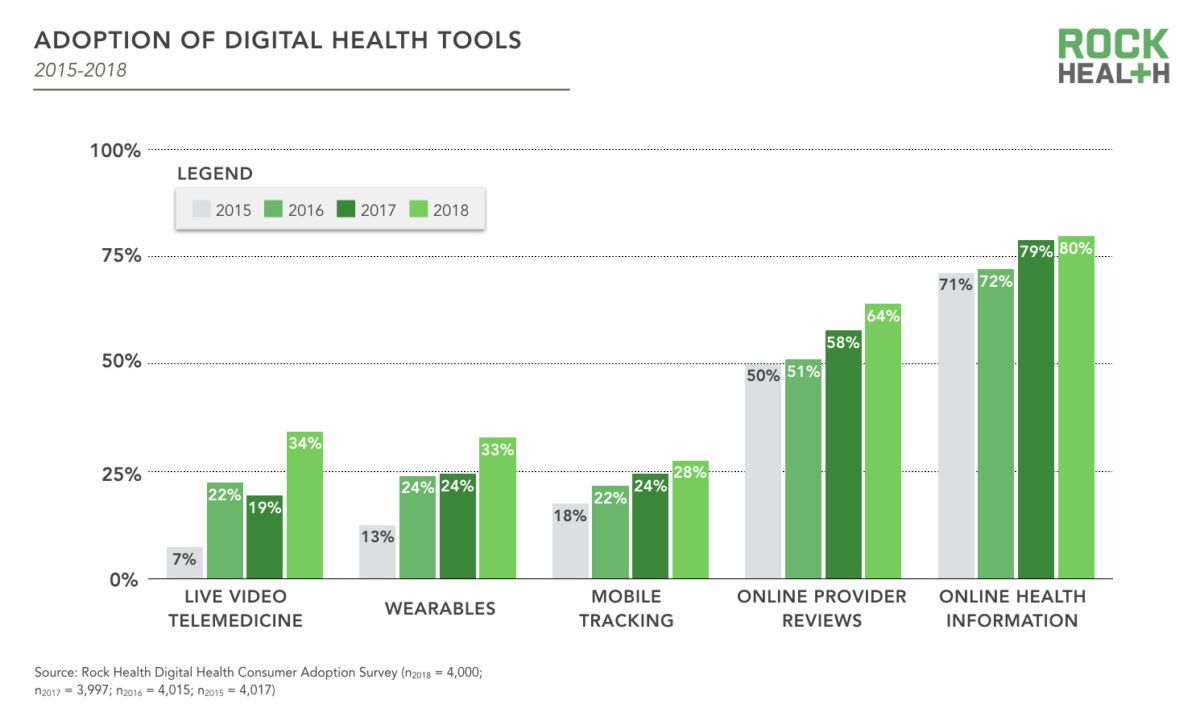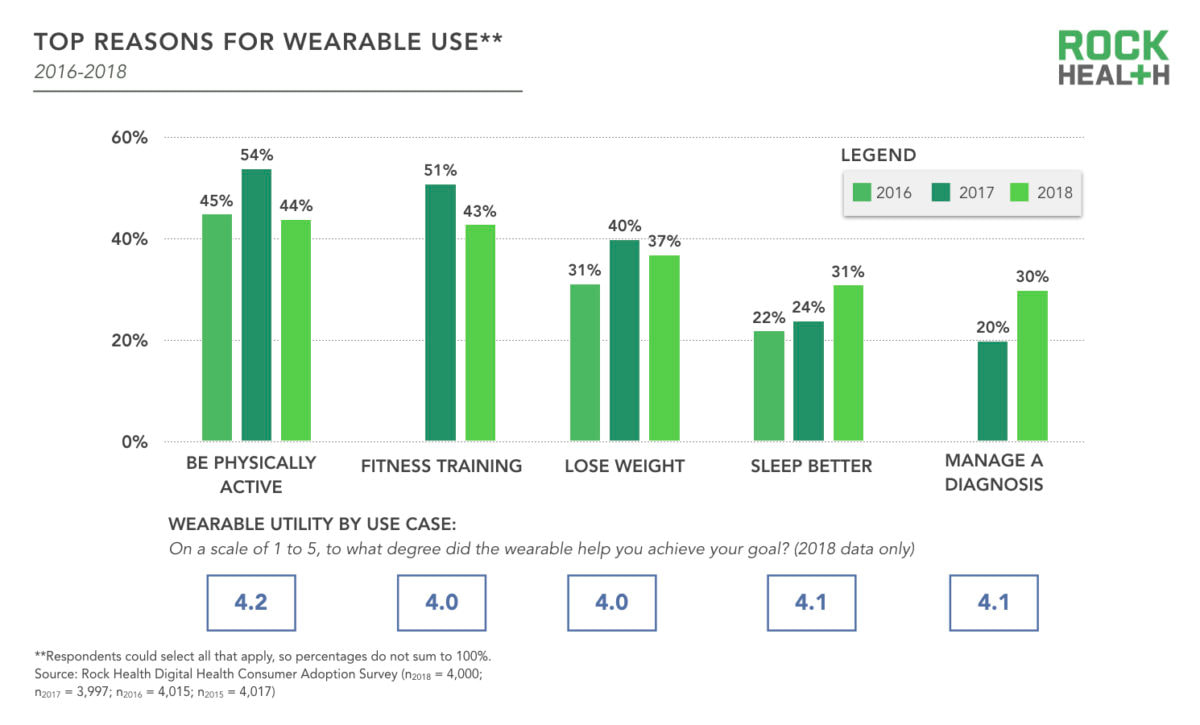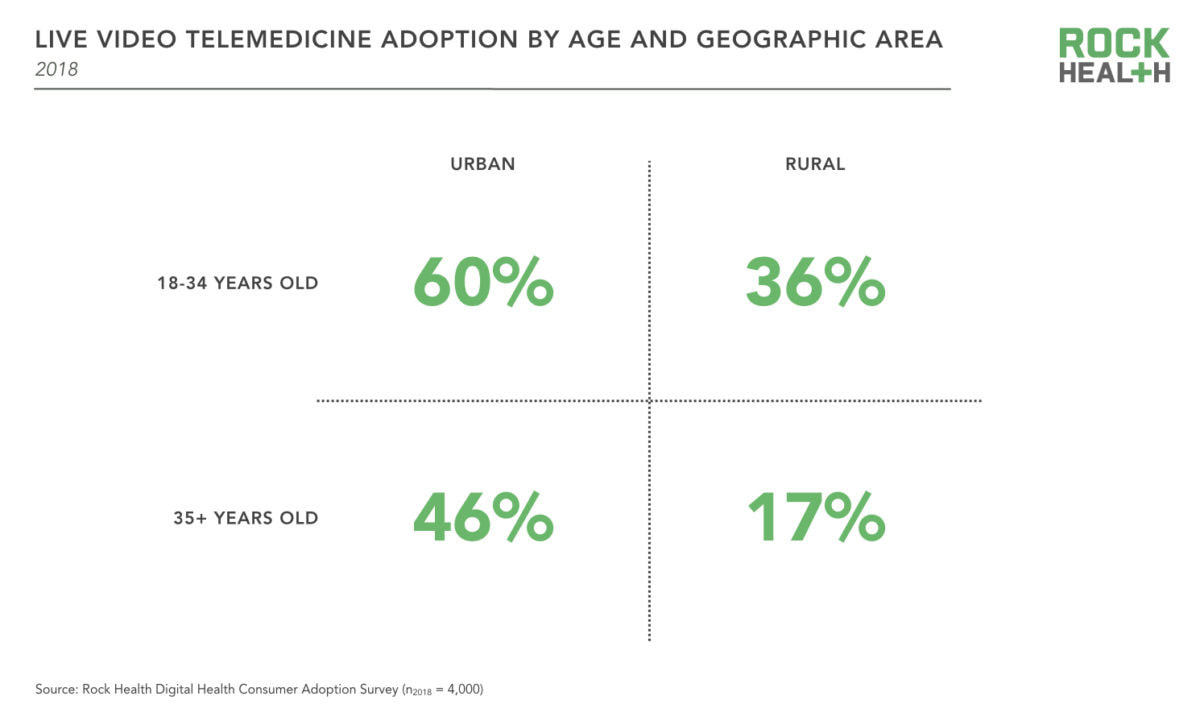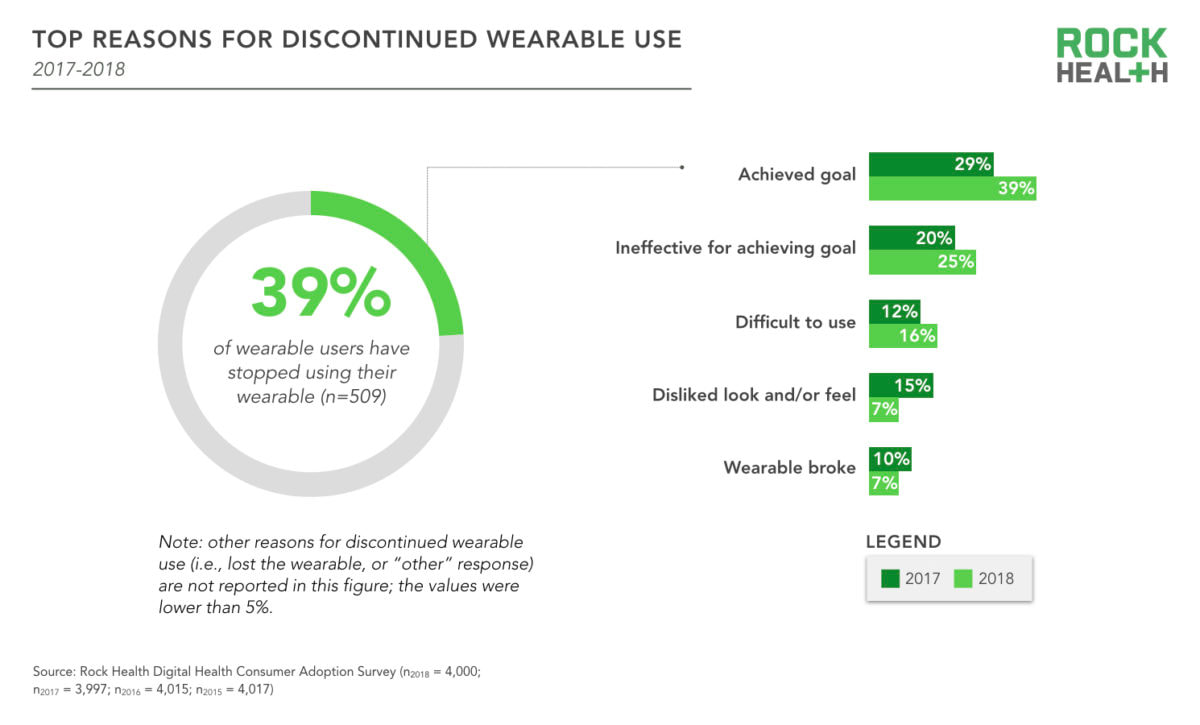|
Rock Health, a leading US venture fund devoted to supporting and investing in digital health startups recently released a report from a 2018 consumer survey on digital health adoption and sentiments. Comparing the latest results from consumer surveys from previous years, there appears to be a shifting trend from interest in low risk entry digital tools that assist with fitness and wellness towards those that assist with managing health conditions - “with the intention to address concrete health needs”. It is important to note these tools often do not reach those who are in need of it the most. Technology adoption has generally been a challenging task with rural, disabled and elderly populations. These populations often have poor digital literacy, access to the internet and relevant hardware (such as smartphones and computers). Nonetheless, there are an increasingly number of exciting startups that make digital health tools easier to use and more accessible for these populations. In the survey, digital health tools were grouped into 5 different categories:
As the graph illustrates below, there is a continued increase over the past 3 years in the adoption of digital health tools and services related to these 5 categories. More interestingly, despite the leading use of wearables is for physical activity, survey respondents are demonstrating a shift towards using wearables from fitness and well-being towards managing diagnoses with potential clinical relevance to health professionals. This trend suggests that healthcare providers will increasingly need to be aware of the emerging consumer use and inquiry of these tools, as the data collected from such devices can potentially assist health professionals in providing patients with further insights into their condition. Another interesting trend is urban consumer adoption of telemedicine services is more than twice as likely than rural consumers. Not surprisingly, tech savvy millennials are the target market of many of these telehealth startups, who are seeking convenience in engaging in healthcare services like the way they engage in food delivery and transportation services. There are also 2 major issues to note that potentially stifle consumer digital health adoption. They are notably privacy and security concerns, and the discontinued use of such tools. There is an increasingly public distrust in sharing personal health data with large tech companies due to a number of scandals which includes the highly publicised Facebook-Cambridge Analytica drama. Health professionals (notably, physicians) remain the most trusted by the public in relation to confidence in sharing personal health data. The survey also identified the leading reasons associated with the discontinued use of wearable devices. It is important for health professionals to be aware of the common reasons which include:
Some key implications from the survey results:
Disclaimer: This text does not serve as medical advice and if you have any questions, seek advice from your doctor. Blog post written by Barry Nguyen, an experienced sports and musculoskeletal physiotherapist and digital health expert.
0 Comments
Your comment will be posted after it is approved.
Leave a Reply. |
AuthorContributors Archives
March 2020
Categories
All
|
|
SOCIAL
|
HealthAide is an independent resource. We do not own shares or make profits from the products listed on this site. Products and services have been curated using the Four Principles of Healthcare Ethics (Beauchamp, T. and Childress, J. (1985) Principles of Biomedical Ethics)
© COPYRIGHT 2018. ALL RIGHTS RESERVED.





 RSS Feed
RSS Feed